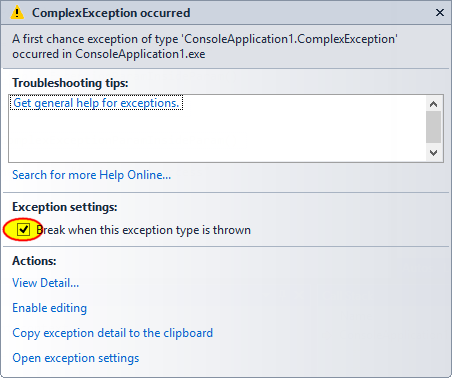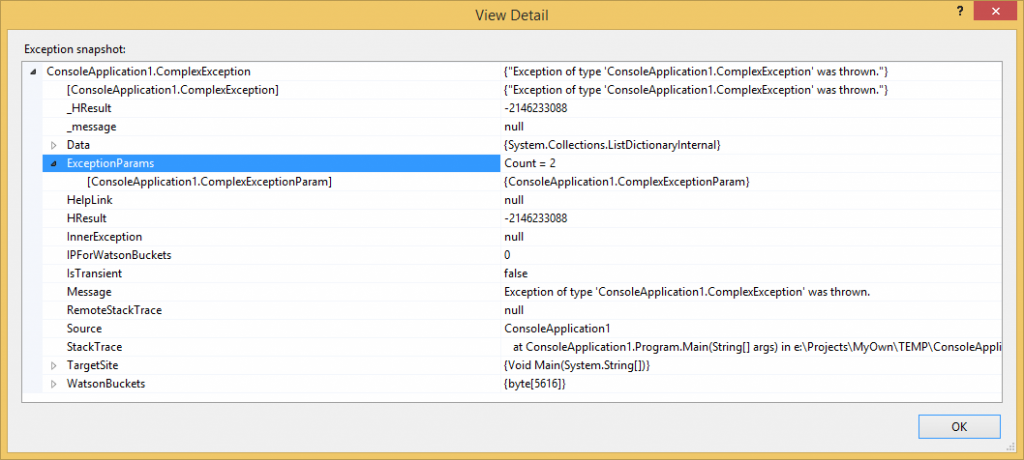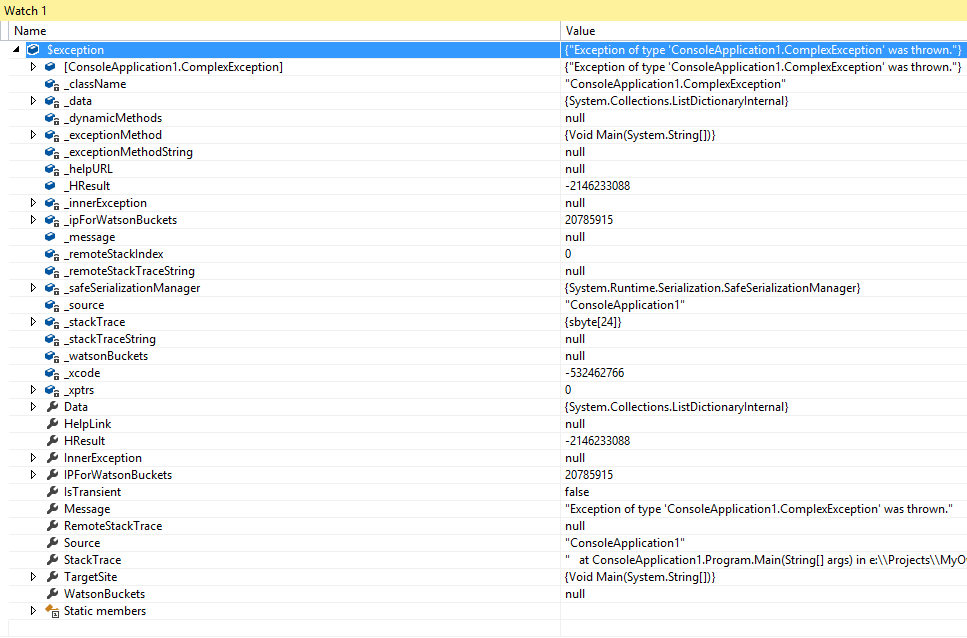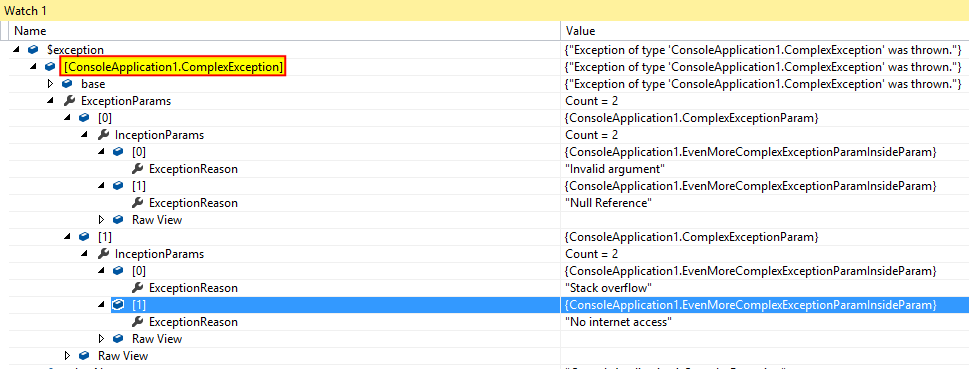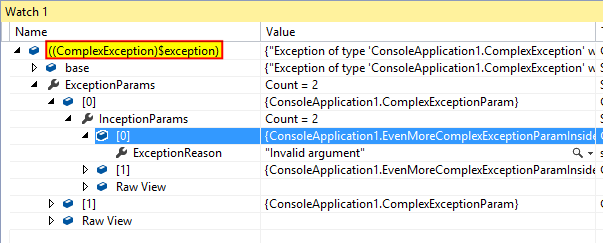What I’ve learned today – Debugging with Pseudovariables ($exception)
Not so long ago I had a small problem with inspecting pretty complex exception. Usually what you see after some exception is thrown is basically this kind of window:
I’ve highlighted Break when this exception type is thrown because without this box being ticked you won’t be able to see $exception pseudovariable inside your Watch window, but about that in a second. After seeing that, usually you click on View Details to check what exactly had happened:
Inspecting all of the provided information doesn’t give you much more information about Exception itself besides the type of it and that there are some more specific information inside the Exception (two exception parameters). Even though we don’t have much information about ‘insides’ of the exception we can tell something from exception name itself, right ? That’s correct, you can figure out what kind of exception or with which group of exceptions you’re dealing with, but you still don’t have specifics. With help comes mentioned earlier $exception pseudovariable.
As you can see there’s a lot information about exception that was thrown. For us the most important part is kept inside ConsoleApplication1.ComplexException:
Now you know exactly what had happened. You can do a little tweak around displaying it in the Watch window, so you won’t be bothered by other properties of Exception object. Just cast $exception to specific Exception type, like so
and voilla
